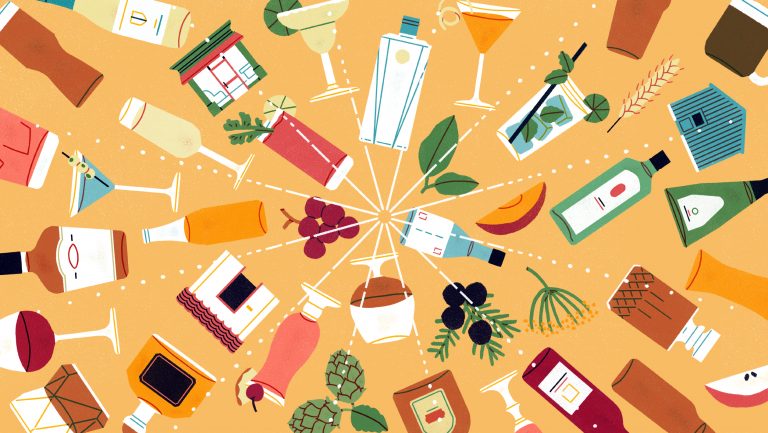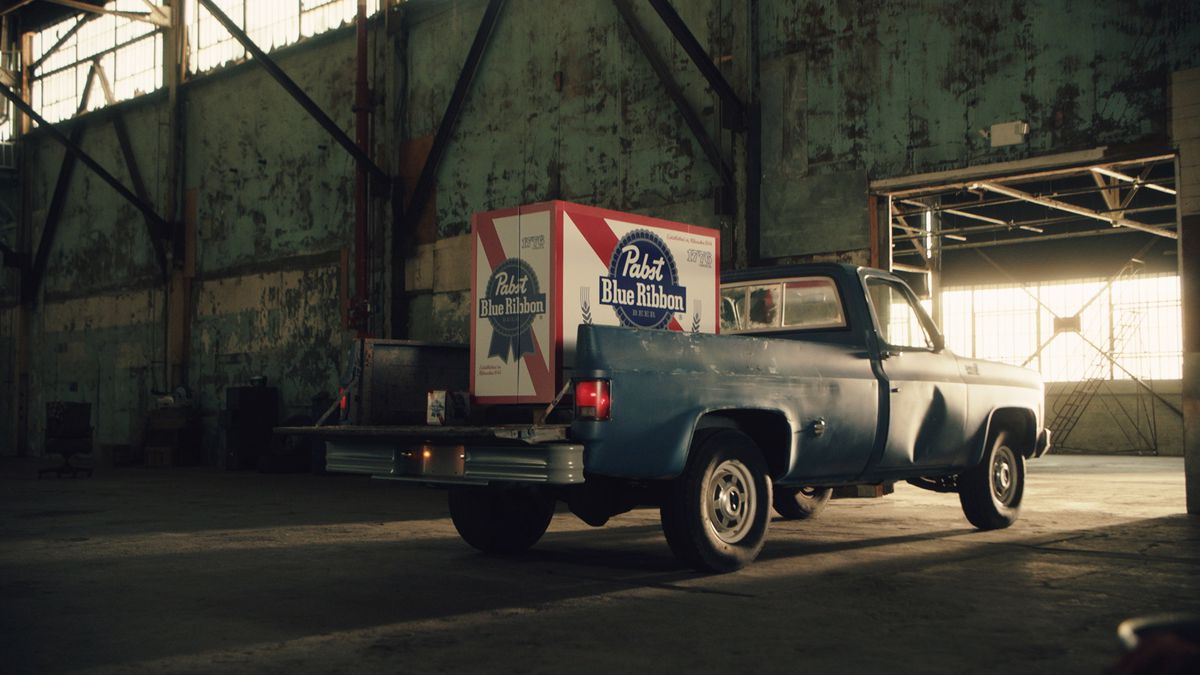Starting a business in 2020—one not centered on selling facemasks, hand sanitizer, or home exercise equipment—was met with one of two reactions. The first, “Yes, this is exactly the right time to start a business!” was delivered sincerely by entrepreneur-types and the risk-inclined (and less sincerely by people who clearly just wanted to make us feel better). The second, more common, response: “Are you… sure?” This was also the question we asked ourselves. Repeatedly.
My husband Jon Ross and I are sommeliers by training, and returned to the U.S. in March 2020 after spending three years working in Melbourne, Australia. While there, we were blown away by the diversity and value of Australian wine, much of which the American market does not see.
So we began putting together a business plan to import Australian wine to the United States. We felt uniquely situated to tell the story of Australian wine to American consumers and wine professionals, and knew dozens of producers who would be well-received by the U.S. wine trade. We also had several promising investor conversations in the months leading up to our return. Things were looking good!

Don’t miss the latest drinks industry news and insights. Sign up for our award-winning Daily Dispatch newsletter—delivered to your inbox every week.
Of course, 2020 had other plans for us. Initial investment dried up, restaurant sales evaporated, tariffs were a question mark, and the willingness of distributors to take on new suppliers seemed dim. Jon and I had a moment where we said to each other, “maybe we don’t do this.” But, when it came down to it, we didn’t have many alternatives. Hiring in the restaurant and wine industry had essentially stopped and the only way for us to have a job was to create it ourselves. So we launched Legend Imports in July 2020.
The past 10 months have been filled with moments of stress, panic, and dread. But they’ve also been filled with many celebratory milestones: 16 producers have joined our portfolio, we’ve put three containers of wine on the water (with purchase orders in for a fourth and fifth), we’ve secured distribution and launched in seven states, and we paid our producers on time and in full for their wine. We certainly aren’t coasting yet (and maybe we’ll never feel like we are), but we survived the year and are optimistic about the future.
And one thing we can say with certainty: it was exactly the right time to start a business. Here’s why.
1. We didn’t have to pivot
Pivot might have been the word of 2020. With the pandemic bringing on the biggest paradigm shift in generations, businesses all over the world had to change the way they operated in order to survive and thrive. Events were canceled or shifted online, protocols for communal activities were overhauled, and work that could be done from home was. Businesses lost money and productivity in this process, and many didn’t survive it. Starting a new business in this time meant that we had no financial or human resources invested in systems that no longer worked. A clean slate became more valuable than a well-oiled machine.
2. We started lean and own 100 percent of our company
Our original business plan called for a highly orchestrated—and expensive—launch: elaborate events and dinners, fancy web design, a profuse marketing budget, and every ounce of product paid for up front. When the pandemic hit and our investors vanished, we were left with a small amount of personal savings to put into the company.
But expectations shifted as well: expensive launch parties and dinners were off the table. We took to the road in an inherited 2005 Ford Taurus rather than paying for plane tickets and pricey product shipping. And our Australian winery partners were largely willing to give us extended payment terms. While our launch was less glamorous and more labor-intensive, we emerged with a thriving business and 100 percent ownership, owing nothing to outside investors.
3. Our distribution partners were self-selective
Our original business plan prioritized the California, Illinois, and New York markets; we envisioned our wines at the Michelin-starred restaurants of San Francisco, Chicago, and Manhattan. Of course, these cities were some of the hardest hit by COVID-19—in particular their restaurants. So we broadened the scope to explore other markets with, well, anyone who would talk to us.
Though there were many unanswered emails, the distributors who did engage us were exactly the kind of partners we wanted to talk to: business managers who valued prompt communication, prided themselves on keeping all their employees (some even growing) during the pandemic, and were adaptable, creative, and resilient.
Another upside: The pandemic also saw many beer- and spirits-focused distributors wanting to make the jump into fine wine. These distributors had always been retail-focused so were not hit as hard by the loss of restaurant business. Adding wine to their portfolio gave them another way to service their existing customers and grow their business. To make this shift, they sought strong educational resources and credibility in the wine world, and valued what Jon and I brought to the table.
Had we launched this company in any other year, our inclination would have been to find homes in boutique, fine wine, on-premise focused distributors, where I fear our wines would have been an afterthought amidst a sea of Champagne, Barolo, and sherry, and our skills and connections would have been redundant. In 2020, those distributors were generally too hard-hit to entertain taking on our wines, so we turned to the distributors that we didn’t know—and they turned out to be the ones we actually needed.
4. We were forced to focus on retail
With Jon and my backgrounds as sommeliers in fine dining restaurants, we naturally saw our wines on wine lists. Whenever we talked about price-points, it was “this will be $90 on a list”—never “this will be $45 on the shelf.” But when we launched in summer 2020 we knew that retail would be a huge focus. So we sought out a broader price offering from our producers, including over a dozen wines that would retail below $30, and have continued our efforts to import value-priced wines. We’ve offered consumer classes, item exclusives, staff trainings, and winemaker interviews as a way of adding value to our retail customers. We’re excited to show our wines to restaurants when the time is right (and eager to provide similar value to a sector of our industry that will need lots of love), but it’s fortunate that we were given the impetus to focus on retail.
5. We created the company with our values front and center.
The pandemic and the events of 2020 elucidated the economic, racial, and environmental injustices that plague our country and world. Pre-2020, the accepted wisdom was that “business is business,” and we shouldn’t let our politics and values interfere. 2020 showed us businesses taking a stand on what is important, from Black Lives Matter to mask mandates, DEI initiatives, and hazard pay.
For us, that meant centering our values at the core of what we do. We now view Legend not only as an import company that will bring great Australian wine to the US, but one that understands our responsibility to help perpetuate the values of equity, inclusion, sustainability, and education that we hold so dear. We created a Statement of Values that outlines our areas of focus and provides specific action items for each. We plan to release an annual report to stay accountable to ourselves and the industry. We understand that this is just the beginning but are appreciative of the foundation that has resulted.
The year 2020 was challenging and heartbreaking and required us all to reevaluate the decisions that we make. We are grateful for the opportunity to continue to do so both in our personal lives and in how we grow and evolve as a business. And we are grateful for the company that was forged from the pressure of 2020: a company that is leaner, stronger, smarter, and kinder than it might otherwise have been.
Jane Lopes is a sommelier, importer, and author. She co-founded and currently runs her own Australian wine import company, Legend Imports.
May 18, 2021 at 04:10AM
https://ift.tt/3hvrEnR
What I Learned Starting a Wine Import Company During a Pandemic - SevenFifty Daily
https://ift.tt/31lUVcw
Wine

No comments:
Post a Comment